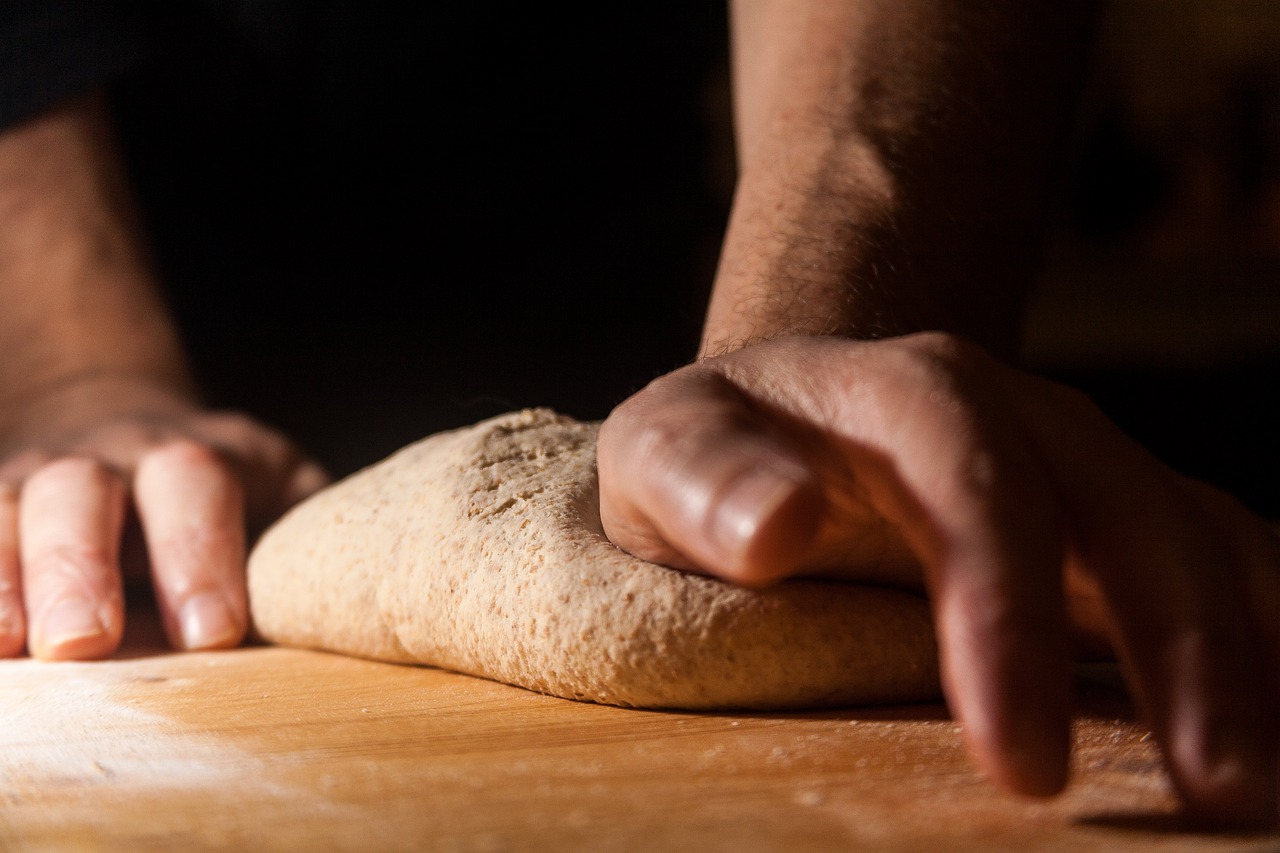I was surprised, honored, and intimidated when I was asked to be the Tassajara summer bread baker. I had some baking experience, having spent a winter in the Tassajara kitchen, but I had never made the quantities and varieties of breads that were expected of someone in this position. Also, the Tassajara baker has a reputation to uphold of making terrific bread. Each day the baker’s job was to make twenty-five to thirty each of three to four different kinds of bread, a total of 100 to 120 loaves, all completely from scratch. Bread was served at student and guest meals and was also offered for sale each day for guests to take home.
For the first two months, this was the most physically strenuous job I had ever had. My days began at 5:00 a.m., and the last batch of bread came out of the oven at about 4:00 p.m. After dinner I would research and plan the breads for the next day, often meeting with the guest cooks to confirm the menus. During the work day I was mixing and kneading 40-50 pound batches of bread, measuring, cutting, and shaping loaves, baking loaves in three different ovens, and orchestrating all this in the middle of an active, bustling kitchen. After completing the baking in the late afternoon, I generally collapsed, my muscles aching, my body hot and exhausted. I ate dinner and then began planning the next day’s menu and recipes.
By the middle of the summer, something clicked. Mixing a batch that had taken me forty minutes in the early summer now took me less than ten minutes. It seemed, suddenly, that very little effort was required. Whereas I had struggled with the kneading process in early summer, by mid-summer it seemed almost effortless. My body had learned how to mix and knead these large and heavy batches of bread without expending much effort.
I learned, over and over, as the Tassajara bread baker, that the less I did, the better the bread came out. The secret to making tasty bread was to plan ahead, use good ingredients, and let the bread do the work. This was an amazing discovery!
Fast forward to my first job after graduating from business school with a $10 million distributor of recycled paper. I came on as the company was gearing up for explosive growth. Everyone worked really hard, people didn’t take lunch breaks, and nearly everyone worked on weekends. I noticed that the harder people worked, the less seemed to be accomplished. Soon after I started working for this company, I was asked to work on a Saturday. I spent a Saturday afternoon in a meeting with the leadership team in which very little was achieved. I made it clear from that point on that I could not work on weekends, except for very clearly-stated projects.
I also contacted one of my business mentors for advice on how to deal with the company culture at my new job. He suggested that I clearly state that my rule is to have dinner every evening with my family. I let my boss and my co-workers know about this rule, and not only was it not questioned, it was also respected. I did have dinner every night with my wife and two children and the work that needed to get done was completed without my needing to work late or on weekends.
Accomplishment has much more to do with focus than with time and effort. We can get more done in a few focused hours than in many days of not being focused.
When I launched my first company, a publishing company called Brush Dance, I was responsible for every aspect of the business — strategy, sales and marketing, accounting, and even wrapping and shipping the packages. As the business grew I hired people to take on specific roles, but I continued to manage key areas of sales and product development. At some point all the departments were run by managers who had more skill and experience than I did. My key role in the company was to be present, to provide guidance and support. I felt much like I did as the head baker at Tassajara — the less I did the better the “bread” came out.
Practices:
- Bring to mind a time when you accomplished more of what matters with less effort. How did this feel?
- What did you learn and how can you bring more effortlessness into your work and life?

